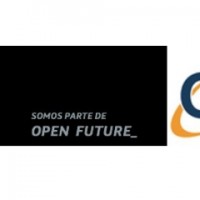 Gonzalo López-Barajas/ @Gonzalo_LB
Gonzalo López-Barajas/ @Gonzalo_LB
Public Policy Manager, Telefónica.
 Mobile has become the main mean of access to the Internet. This is the case especially for developing countries where fixed infrastructures are not so widely available. Mobile technology is one of the main levers to implement Telefónica’s vision to open up the possibilities of technology and to make a positive contribution to the lives of our customers.
Mobile has become the main mean of access to the Internet. This is the case especially for developing countries where fixed infrastructures are not so widely available. Mobile technology is one of the main levers to implement Telefónica’s vision to open up the possibilities of technology and to make a positive contribution to the lives of our customers.
But on top of being the most relevant Internet enabler, mobile technology is also changing how we live the Internet; portable smart devices in combination with new functionalities are life changing: rather than typing, we tap links on touchscreens, rather than browsing, increasingly we use apps, which can also provide a global marketplace to sell content through app stores, increasing the availability and the way we discover content online.
The 2015 Global Internet Report (GIR 2015) of the Internet Society “Mobile Evolution and development of the Internet” understands these profound changes. Quoting Bill Gates on how we overestimate changes to occur in next two years but underestimate changes for the next ten, ISOC assesses the rise of the mobile Internet, and how it has provided benefits in every part of our lives. But benefits come along with their own challenges; benefits should not come at the expense of the founding principles of the Internet as we know it today.
Michael Kende, Chief Economist at ISOC, highlights a couple of these challenges in his post “The mobile divide”. He provides a brief overview on the GIR 2015 trying to answer why are potential users who could have Internet have not taken it are if Internet availability is no longer the limiting factor? And there are two underlying reasons: affordability and relevance of Internet service.
The first is easy to understand: as in some countries broadband still costs 10% or more of average monthly income, it is thus out of range for most; and Kende points to governments as a significant factor in the cost equation and thus in its solving by reducing or removing taxes on equipment, devices, and services that act to depress demand, and high costs for deploying infrastructure and spectrum. As an indication, Telefónica’s tax payments in Brazil account for over 40% of total revenues in the country.
Relevance refers to willingness of users to spend their time and money on Internet: what is in it for them? Is there content available in their language? Is it of interest? Useful? As we already highlighted in Connect the unconnected section of Telefónica’s publication A Digital Manifesto_, “around 20% of consumers do not access the Internet because they do not know how or do not see the need to do it”. Promote content creation by developing own local mobile services, hosting them locally, and promoting the capacity building to support these activities are ways to address this challenge.
Kende also refers to the role of apps and app stores in the mobile Internet, suggesting challenges arising from different availability of apps across geographies and across app stores, also pointing to accessibility to apps to promote adoption and usage of Internet. Interestingly, more usage of web apps is recommended as a way for developers to create one web app for all platforms – so that consumers can easily move between platforms the way they switch browsers today– and for enabling new platforms to enter and compete on more of an even ground. At Telefónica we have in great depth address this challenge, the Digital Life Portability, in our already mentioned Digital Manifesto. When consumers try to change between smartphones or tablets running on the two dominant mobile operating systems on the market, they encounter numerous obstacles.
Perhaps the most relevant is that the applications they are using on one device cannot be transferred to another. The app might not be even available for the other operating system, or if available, user will have to purchase the app again, paying twice for it. This my deter consumers to switch to a smartphones based on a different mobile Operating System because of these closed systems, which create lock-in effects. But these closed ecosystems do also create lock-out effects, as some vendors might be excluded by preventing the delivery of their apps in such ecosystems, or by having a successful app not developed for their platforms, seriously limiting their success options. As a result, closed platforms might end up restricting customer choice and competition. Apps based on open web standards such as HTML5 can play a significant role in addressing the Digital Life Portability challenge in a mobile Internet. ISOC’s GIR 2015 report encourages a multi-stakeholder support for the Open Web Platform as a way to increase platform choices for users.
An smart devices and app based mobile Internet poses significant additional challenges to Internet evolution. Though smart devices run great apps, many times free apps, helping us to navigate in unfamiliar cities, suggest restaurants in the area, summon a taxi o other location based services that may include features such as cameras, the flip side of the coin is increased privacy issues; many users are surprised when confronted with the resulting data of those services that is stored and shared among a variety of companies. ISOC recommends ensuring that users have the ability to provide privacy permissions in a way that is simple to understand and implement. At Telefónica, we make a call to put people in control of their personal data.
Security issues regarding wireless interfaces and access to apps are mentioned in GIR 2015 report. We fully agree with ISOC’s recommendation on the collaborative security approach to mobile security with all players in the ecosystem playing a significant role in this effort. Privacy and Security issues are address in the Digital Confidence section of our Digital Manifesto; consumer trust and confidence are critical for a thriving Digital Economy, we need to build Digital Confidence for the society to fully embrace the Internet.
A great report by ISOC rightly addressing the challenges of mobile Internet, but also putting into value its benefits for the society. All efforts to have a positive impact in tackling the greatest challenge of all, getting everyone connected to the Internet, count. And undoubtedly mobile infrastructure shall play a relevant role in overcoming this challenge, in connecting the next billion. Happy to be part of it.








